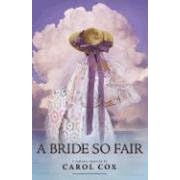
After growing up in an orphanage, Emily Ralston loves being around children and thoroughly enjoys her job at the Children’s Building at the 1893 Chicago World’s Fair. As the receptionist she helps check in the children and ensures they are safe and well cared for while their parents view the fair. She could not have known what God had in store for her…
When Columbian Guard, Stephen Bridger, drops off a three-year-old named Adam as a lost child, her life irrevocably changed. While the sparks of attraction are undeniable, Emily tries her best to ignore them as she and her best friend, Lucy, scheme to keep Adam safe and happy, far away from the orphanages they both know too well.
Soon Stephen learns about Adam’s mother while both the mystery and his relationship with Emily deepens. As they learn bits of truth, danger and deception now threaten to undermine their growing relationship. Why is a young woman murdered while surrounded by thousands of fairgoers? What secrets could a sweet, abandoned little boy possibly hold? Can Emily and Stephen solve the deadly mystery before time runs out?
Themes in the Book: Emily and Stephen’s unique love story offers a fresh and inspirational lesson of trust and betrayal, faith and doubt, the meaning of family and God’s unending goodness.
 |
About Carol Cox
Award-winning author of twelve novels and eleven novellas, Carol shares her love of history, mystery, and romance in the books she writes. A pastor’s wife, Carol makes her home with her husband and young daughter in northern Arizona. To learn more about Carol and her books, visit her Web site at www.CarolCoxBooks.com.
| |
Q&A with Carol Cox, author of A Bride So Fair
Q. Where did you get the idea to write A Bride So Fair?
A. Several years ago, I came across a brief article that mentioned the World’s Columbian Exposition held in Chicago in 1893, calling it a pivotal moment in our nation’s history. And my response was, “If it was such a big deal, how come I’ve never even heard about it?” So I looked it up online and was overwhelmed at the wealth of information I found. I had no idea how many of the things we take for granted today were introduced at that fair—things like the Ferris wheel, Cracker Jacks, Cream of Wheat, Juicy Fruit gum, and the concept of the Midway. Familiar names from our history books were among the 27 million people who visited the fair. Thomas Edison, Scott Joplin, Frederick Douglass, Jane Addams, and Susan B. Anthony were all there. It was a moment in which our nation felt itself on the brink of major change, and the more I learned about the fair, the more excited I became. I knew I had to set a story there, and that initial idea turned into a three-book series, A Fair to Remember. A Bride So Fair is the final title, and it was hard to say goodbye to the setting and characters I’ve come to love.
Q. How much research is involved in writing a solid historical fiction novel like this one?
A. I was so fascinated by what I learned about the fair that I continued researching for two years before the first book in the series was even contracted. As I mentioned above, I found a tremendous amount of information online, including photos of the fairgrounds and its buildings. I was able to purchase several books printed during that time period that gave detailed descriptions of exhibits as well as the reactions of people who visited the fair. That was invaluable in getting insight into how it affected people of that day. I studied maps of the grounds and floor plans of several of the buildings until I felt like I could navigate them as easily as I can get around my home town.
All of that helped in getting my facts straight, but I needed to add sensory details to make the setting come alive. What would my hero and heroine experience on the shore of Lake Michigan? What would they see, hear, smell? How would it feel to walk across the vast fairgrounds or stroll along the edge of the lagoon? I made a trip to Chicago, where I spent a day at Jackson Park, the site of the exposition. All but one of the buildings are long gone, but simply being there and soaking up the setting added a myriad of details for me to draw on when writing the story. At that point, I could look at my research photos and feel like I could step into the scene and describe it as though I’d actually been there.
Q. What inspires you the most as a writer?
A. It’s always interesting to hear what sparks ideas for other writers. For some, it springs from a character; for others, the catalyst is an issue they’re passionate about. With me, the setting often comes before either the characters or the plot. A particular place will catch my imagination and I’ll wonder what kind of people might have been there and what would have happened to them. I love the challenge of bringing a setting to life so it becomes something a reader can experience rather than just read about.
Q. You’ve written quite a few novels already, do you have any advice for aspiring novelists?
A. Read in a wide variety of genres to discover which holds the most appeal for you. Your writing will show far more depth and passion if you're working in a genre you love.
Be patient. Prepare to learn and gear yourself mentally for a marathon, not a sprint. The learning process takes time.
Study the craft of writing. There are excellent books available, covering everything from basic grammar to character development to plot and structure and much more. A number of organizations exist today that offer teaching, encouragement, and support to both aspiring and experienced writers. And writers conferences are held all around the country. Attending conferences is a wonderful way to build on your knowledge as well as getting to know others who share your passion for writing.
Develop a teachable attitude. The more I write, the more I realize how much more there still is to learn. There is always the joy of growing, of improving my skills, of learning to be a “workman who does not need to be ashamed and who correctly handles the word of truth.” (from 2 Timothy 2:15 NIV)
A Bride So Fair (ISBN 13: 978-1-59789-492-0) is published by Barbour.






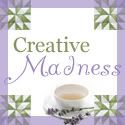

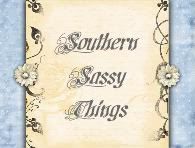

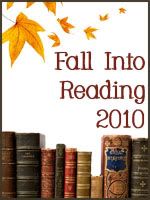

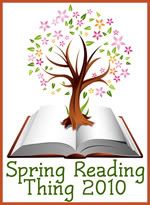
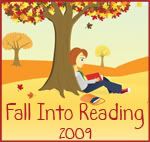
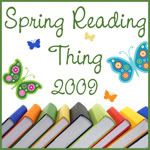












No comments:
Post a Comment